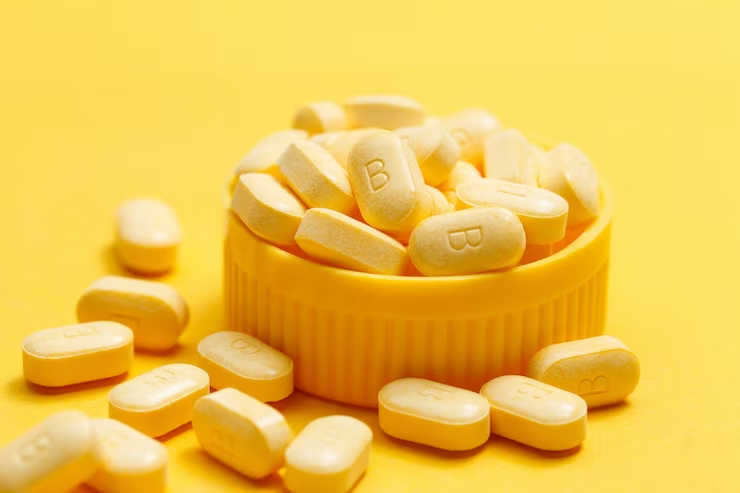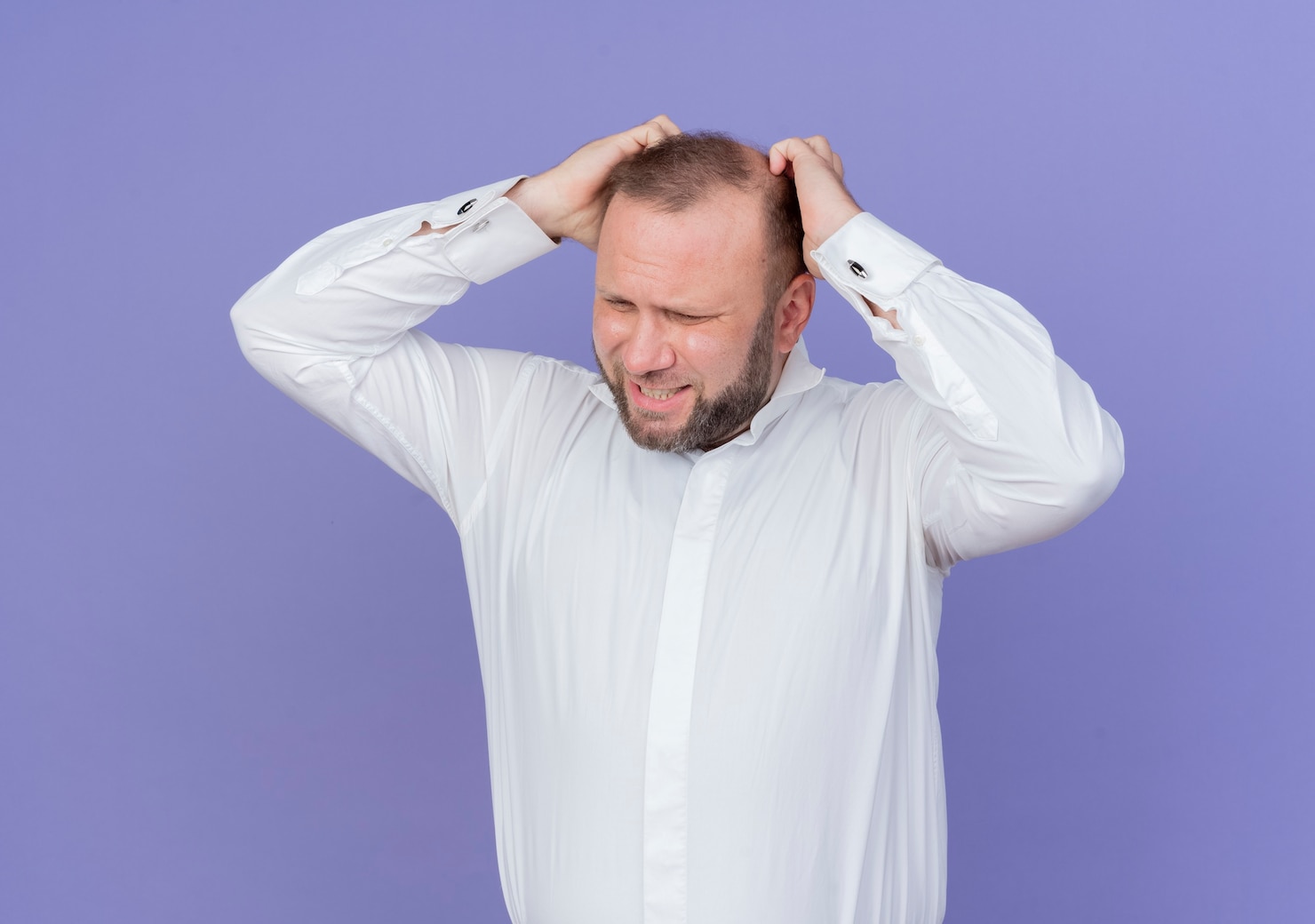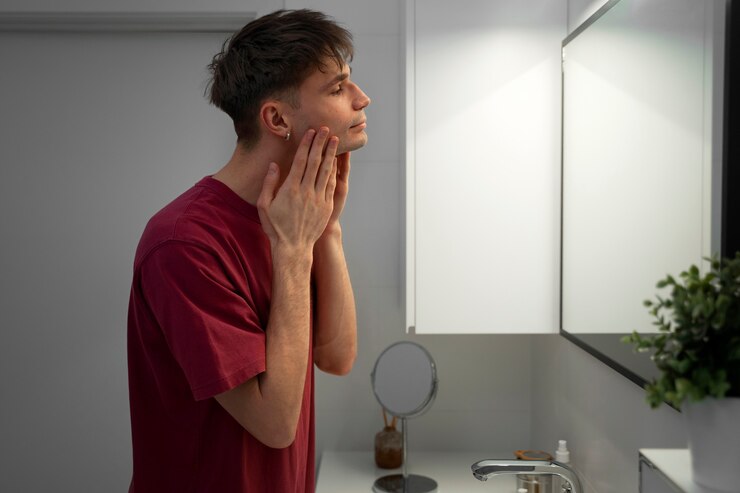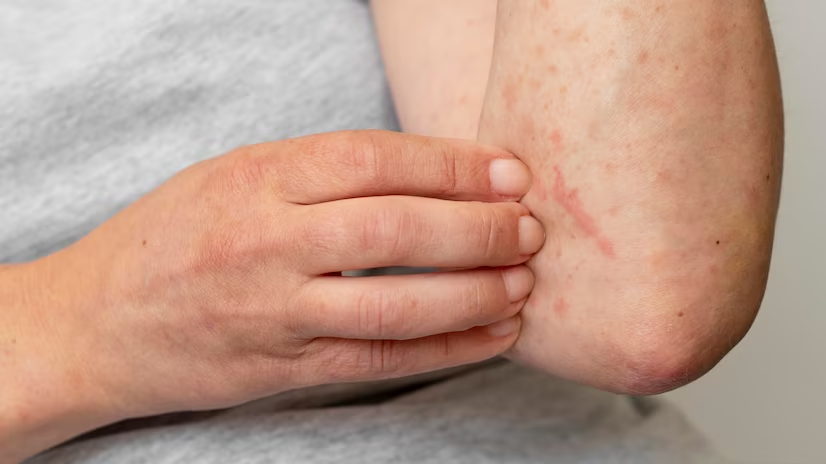
Does biotin cause acne? This question has become a topic of concern and debate among individuals who incorporate biotin into their beauty and wellness routines. Biotin, also known as vitamin B7, has gained immense popularity as a supplement for promoting healthy hair, skin, and nails. However, some individuals claim that biotin may lead to acne breakouts.
This blog post will delve into the scientific evidence to uncover the truth behind this claim. By examining the possible mechanisms and scientific studies and considering other factors at play, we aim to clarify whether there is a real link between biotin and acne. So, let's separate fact from fiction and explore the potential effects of biotin on acne-prone skin.
Understanding Biotin
Biotin, also known as vitamin B7, is a water-soluble vitamin that plays a vital role in numerous metabolic processes within the body. It is an essential nutrient that helps convert food into energy and is involved in the metabolism of fats, carbohydrates, and proteins. Biotin is naturally present in several foods, including eggs, nuts, seeds, and leafy green vegetables.
One of the critical reasons for the popularity of biotin is its association with promoting healthy hair, skin, and nails. It is believed to contribute to the maintenance and growth of strong, lustrous hair, improve the condition of brittle nails, and enhance the overall health and appearance of the skin.
Biotin supports the skin's health by aiding in producing fatty acids, essential for maintaining skin moisture and elasticity. Additionally, it supports the growth and development of skin cells, helping to ensure a healthy complexion.
While biotin can be obtained through diet, many individuals opt for biotin supplements to meet their daily recommended intake. These supplements often come in capsules, tablets, or gummies, making them easily accessible for those seeking to boost their biotin levels.
The Link Between Biotin and Acne
One of the primary concerns surrounding biotin supplementation is whether it can cause or exacerbate acne breakouts. The question of "Does biotin cause acne?" has garnered attention due to anecdotal reports of individuals experiencing acne flare-ups while taking biotin supplements. However, it is essential to examine the available scientific evidence to determine if there is a substantiated link between biotin and acne.
Various hypotheses have been proposed to explain the potential relationship between biotin and acne. One theory suggests that biotin can disrupt the balance of bacteria in the gut, leading to an overgrowth of acne-causing bacteria. Another hypothesis suggests that biotin may influence sebum production, the oily substance produced by the sebaceous glands, which can contribute to acne development when produced excessively.
Despite these theories, it is crucial to note that the scientific evidence supporting a direct causal relationship between biotin and acne is limited. While some claim that biotin has worsened their acne, there is a lack of comprehensive studies to establish a definitive link.
Common Signs and Symptoms of Biotin Deficiency
Biotin deficiency is rare, as the body requires only small amounts of this essential vitamin. However, certain individuals may experience signs and symptoms indicating a deficiency. Recognizing these common indicators can help identify a potential biotin deficiency and prompt appropriate measures to address it.

Hair Loss
One of the hallmark signs of biotin deficiency is hair loss or thinning hair. Biotin is crucial in maintaining healthy hair follicles and promoting hair growth. Insufficient levels of biotin can lead to brittle, weak hair prone to breakage and loss.
Skin Issues
Biotin deficiency can manifest in various skin problems. Dry, scaly skin, redness(erythema), dermatitis especially around eyes, mouth and nose, eczema-like rashes, or fungal infections are commonly observed in individuals with biotin insufficiency. Biotin maintains healthy skin cells and promotes their renewal and repair.
Brittle Nails
Brittle, fragile nails prone to splitting, cracking, or displaying unusual ridges can indicate a biotin deficiency. Biotin supports the formation of strong, resilient nails, and lacking this essential nutrient can weaken nail structure.
Fatigue and Muscle Weakness
Biotin deficiency can contribute to feelings of fatigue, weakness, or muscle cramps. Biotin is involved in energy metabolism and helps convert food into usable energy for the body. Insufficient biotin levels can impact the body's energy production and result in general fatigue and muscle weakness.
Hearing loss and Other Neurological Problems
Biotin deficiency is also associated in certain cases with hearing loss (sensorineural hearing loss) and visual problems. It can also cause fits (seizures), numbness and tingling sensation in the arms and legs, mental retardation and developmental delay in children if its diagnosis is delayed or it is left untreated.
Do Biotin Supplements Have Side Effects?
Biotin supplements are generally considered safe when taken within the recommended dosage range. However, as with any dietary supplement, there is a possibility of experiencing side effects.
The association between biotin and acne has sparked discussions and raised questions: does biotin cause acne? While the direct relationship between these two is not fully established, it is important to be aware of potential side effects, including those related to the skin.
Acne Breakouts
Some individuals have reported experiencing acne breakouts while taking biotin supplements. However, it is essential to note that the scientific evidence linking biotin supplementation directly to acne is limited. Acne is a complex condition influenced by multiple factors, and it may not be solely attributed to biotin intake.
Allergic Reactions
In rare cases, individuals may develop an allergic reaction to biotin supplements. Symptoms can include itching, hives, swelling, or difficulty breathing. If you experience any allergic reactions after taking biotin, discontinue use and seek medical attention immediately.
Digestive Issues
Biotin supplements are generally well-tolerated, but some individuals may experience digestive issues such as nausea, cramping, diarrhea, or an upset stomach. These side effects are usually mild and temporary, subsiding as the body adjusts to the supplement.
Interference with Lab Tests
Biotin supplements can interfere with certain laboratory tests, leading to inaccurate results. High doses of biotin can affect tests that rely on biotin-streptavidin interactions, such as hormone and thyroid function tests. If you are taking biotin and require lab tests, inform your healthcare provider to ensure an accurate interpretation of the results.
How to Treat Acne with Biotin
While the direct relationship between biotin and acne is not fully established, some individuals have reported improvements in their symptoms with biotin. If you are considering utilizing biotin as a potential treatment for acne, it's important to approach it as part of a comprehensive skincare routine. Here are some strategies to incorporate biotin into your acne treatment plan:

Consult with a Healthcare Professional or Dermatologist
Before incorporating biotin or any other supplement into your acne treatment, it is advisable to consult with a healthcare professional preferably a dermatologist. They can evaluate your situation, assess the potential benefits and risks, and provide personalized recommendations based on your needs.
Choose the Right Biotin Supplement
Biotin supplements are available in various forms, including capsules, tablets, and gummies. Select a reputable brand and choose a supplement with the appropriate dosage recommended by healthcare professionals. Look for supplements that are third-party tested for quality and purity.
Maintain a Balanced Approach
Biotin should be considered as part of a holistic approach to acne treatment. Maintaining a balanced diet, exercising regularly, managing stress, and following a skincare routine suitable for acne-prone skin is important. Biotin alone may not provide a comprehensive solution for acne management.
Follow Proper Dosage Guidelines
Adhere to the recommended dosage guidelines for biotin supplementation. Taking excessive amounts of biotin beyond the recommended dosage will not necessarily yield better results and may increase the risk of potential side effects. Both over- and underdose of a medication can be responsible for either side effects or no effect of the medicine.
Combine with Other Acne Treatments
Biotin can be used in conjunction with other proven acne treatments. This may include topical creams, cleansers containing ingredients like salicylic acid or benzoyl peroxide, and prescription medications, as your dermatologist advises. Biotin should be viewed as a complementary approach rather than a standalone solution.
Monitor and Adjust
Keep track of your skin's response to biotin supplementation. If you notice any adverse effects or an increase in acne breakouts, discontinue use and consult with a healthcare professional. Conversely, if you experience positive changes, monitor your skin's progress and adjust your regimen accordingly.
Also, acne is a medical issue and it requires certain medications to resolve. These medications are specifically formulated to treat acne. Biotin may help as an adjunctive agent, but as it has been mentioned previously, it is not the mainstay of treatment of acne, therefore, expecting too much is also not recommended.
Remember, the effectiveness of biotin as a treatment for acne can vary among individuals. Having realistic expectations and patience is important, as results may take time. Every person's skin is unique, and what works for one individual may not work for others.
Other Factors at Play That Causes Acne
When considering the potential relationship between biotin and acne, it is crucial to recognize that acne is a complex skin condition influenced by various factors.

Hormonal fluctuations Hormonal changes (during puberty, menstruation, or hormonal imbalances) can lead to increased sebum production, clogged pores, and acne breakouts. Genetic factors also play a significant role, as some individuals may have a predisposition to acne due to their genetic makeup.
Diet
A diet high in refined sugars, unhealthy fats, and processed foods has been associated with an increased risk of acne. On the other hand, a balanced diet that includes plenty of fruits, vegetables, whole grains, and lean proteins may support overall skin health.
Having said that, an unhealthy diet cannot be totally blamed for causing acne because the underlying mechanism of this condition is not an unhealthy diet but certain hormonal changes taking place in the body and their effect on the skin.
Stress
Stress can trigger hormonal changes and increase inflammation, potentially contributing to acne breakouts. Additionally, poor skincare habits, such as excessive use of harsh products, failure to cleanse properly, or picking at the skin, can aggravate acne.
Skincare Habits
Improper skin care practices can worsen acne. Using harsh or comedogenic products, overwashing or scrubbing the skin vigorously, and not properly removing makeup can irritate the skin and contribute to acne breakouts and scar formation which are permanent in certain types of acne. Establishing a gentle and suitable skincare routine is crucial for acne management.
Environmental Factors
Environmental factors such as humidity, pollution, and exposure to certain chemicals or irritants can affect the skin and potentially contribute to acne formation. Maintaining a clean environment, protecting the skin from pollutants, and using non-comedogenic products can help reduce the impact of these factors.
Conclusion
In conclusion, while the direct link between biotin and acne is not fully established, some individuals have reported changes in their skin while taking biotin supplements. It is important to cautiously approach biotin for acne management and consider individual factors.
Consulting with healthcare professionals, maintaining a balanced approach, and monitoring your skin's response is crucial. Remember, biotin should be seen as a complementary part of a comprehensive acne treatment plan,not the mainstay of treating acne and the results vary for each individual.














